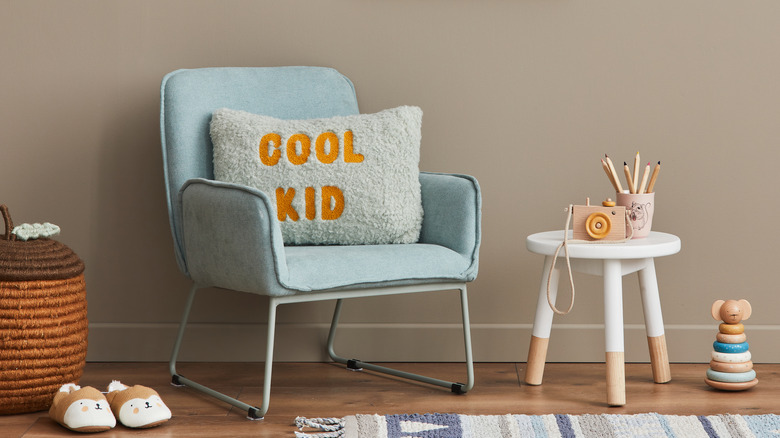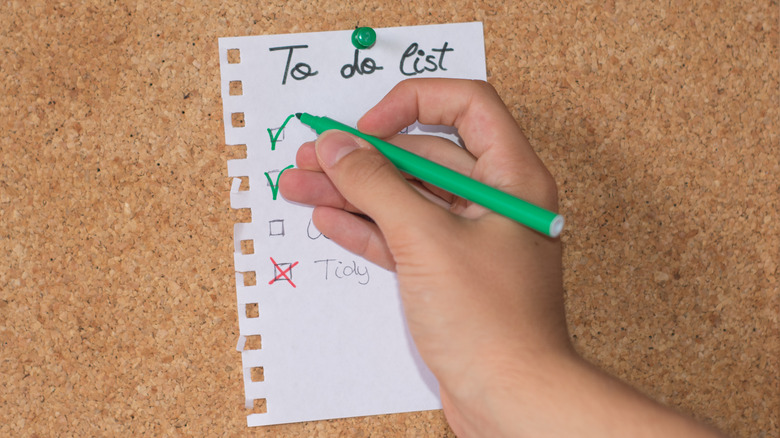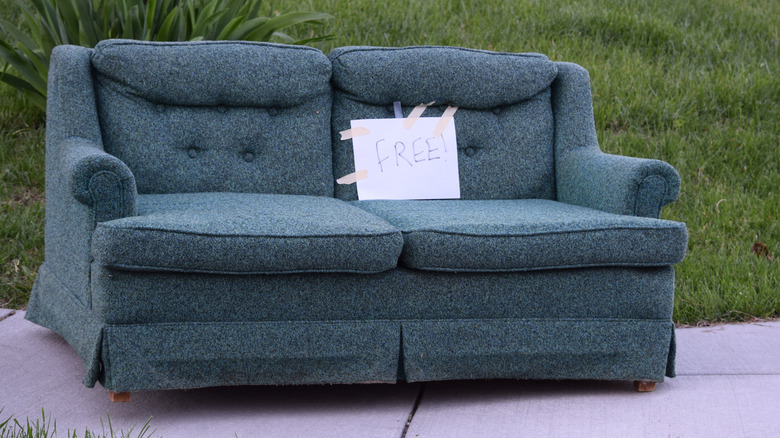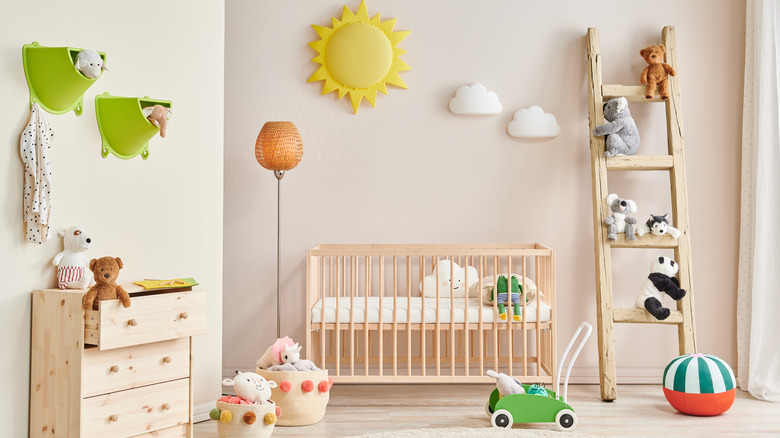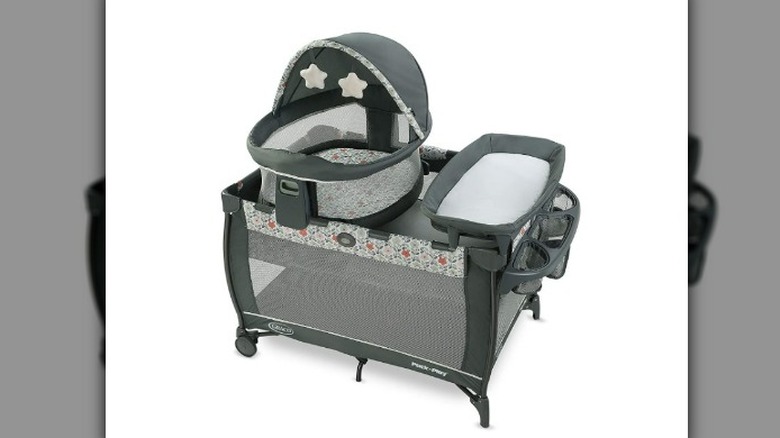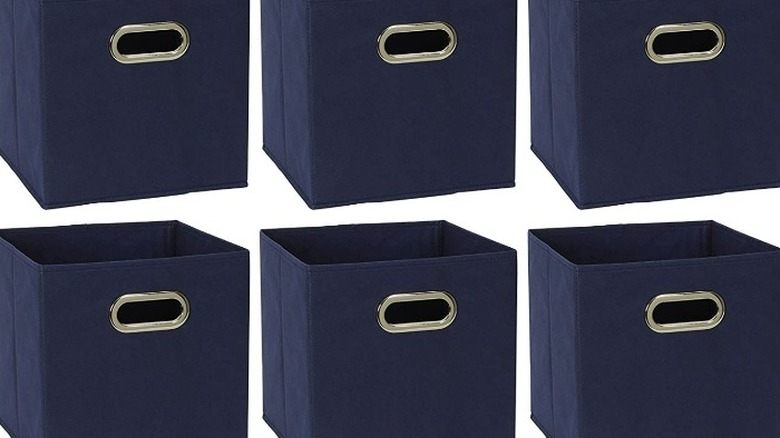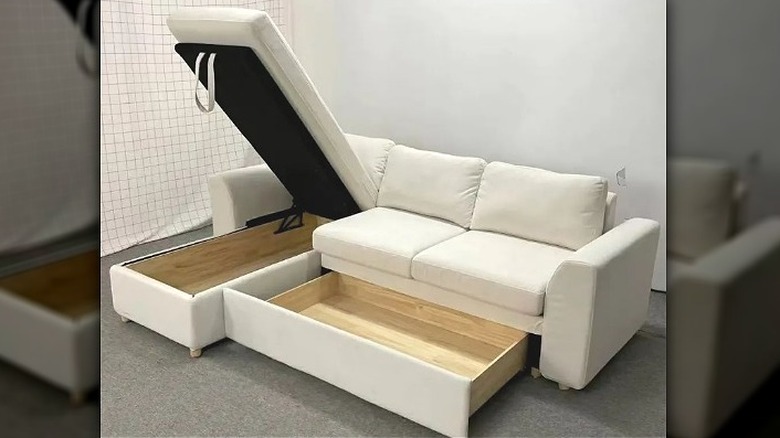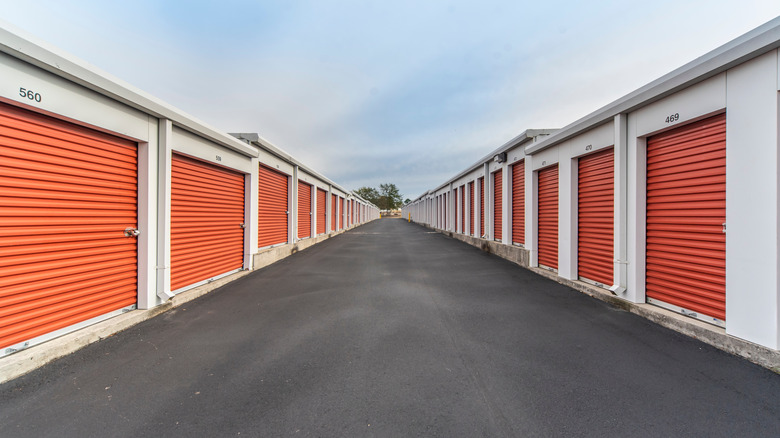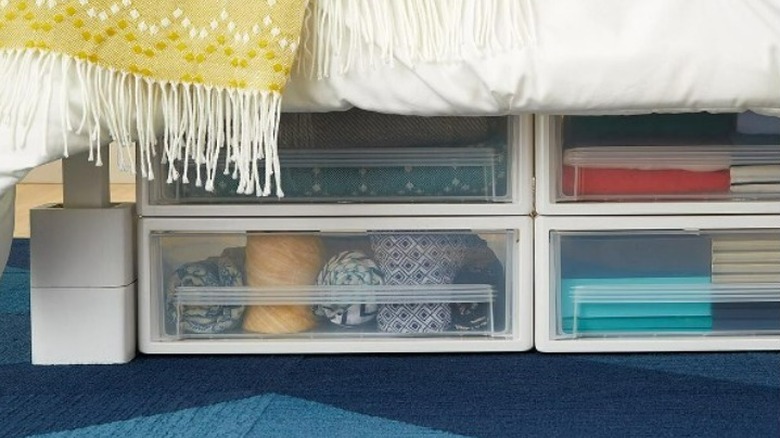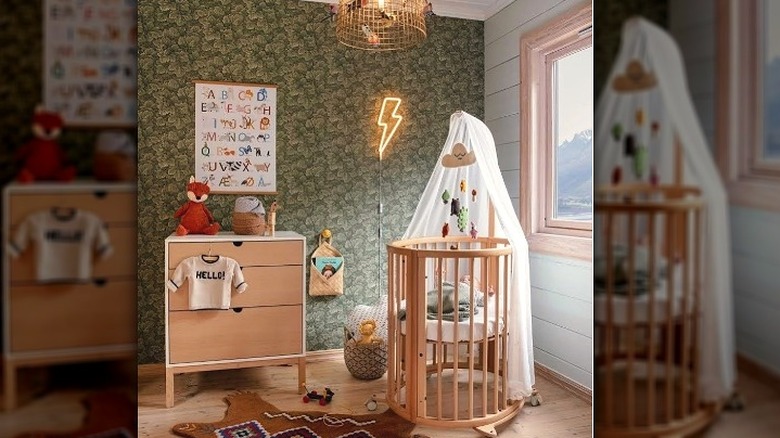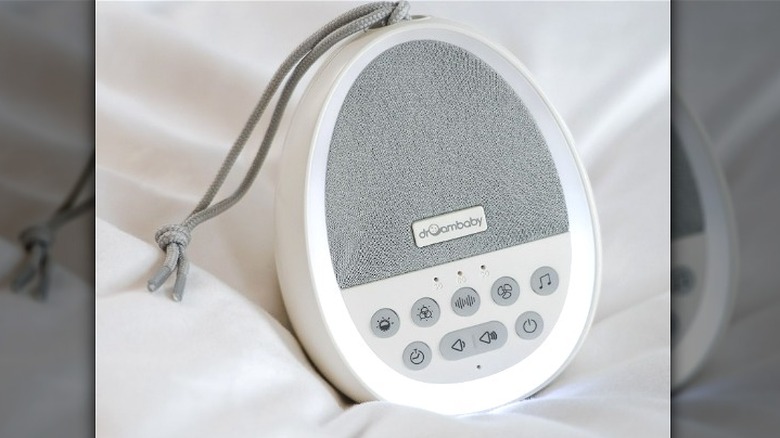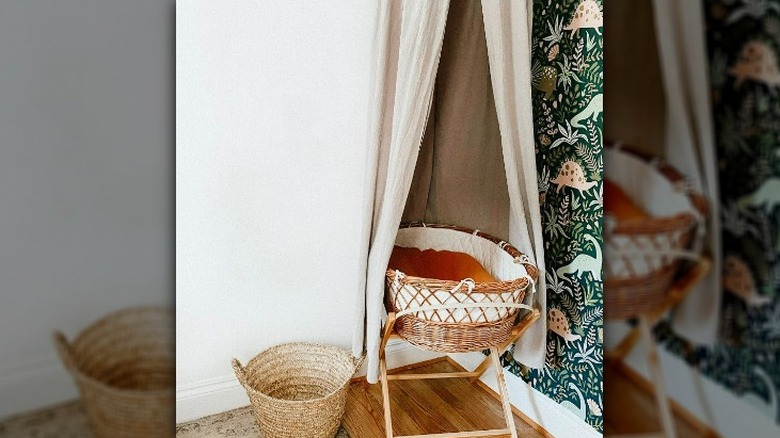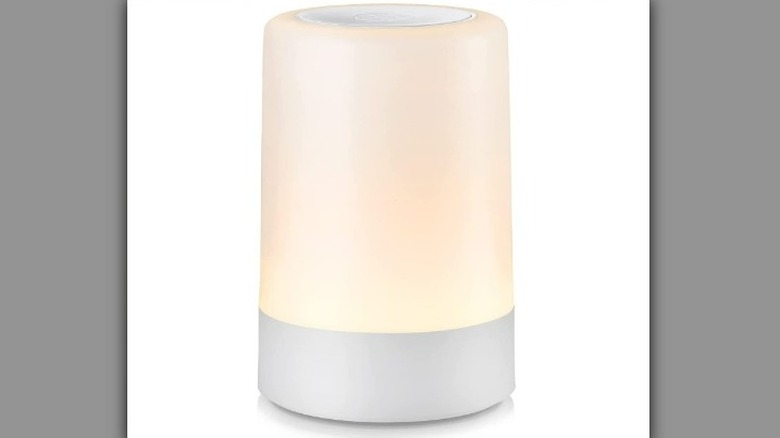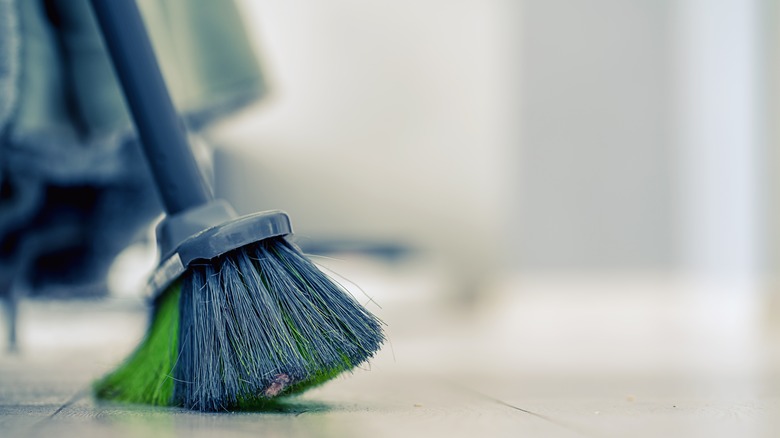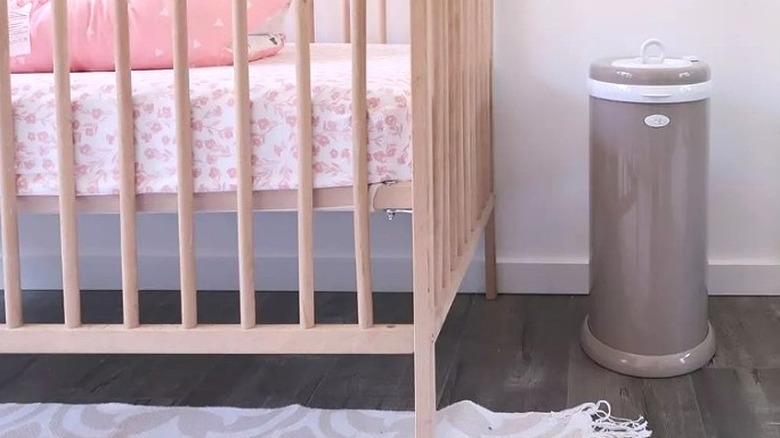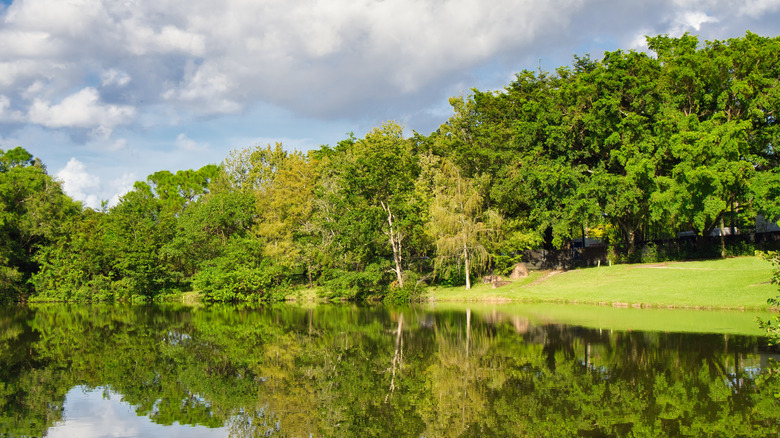How To Prepare A Studio Apartment For Life With A Newborn
We may receive a commission on purchases made from links.
Congratulations, you're going to become a parent. Wouldn't this have been great to know before you signed the lease to your new 500-square-foot studio apartment? All kidding aside, when you find out that you're expecting, it's a momentous occasion that should most definitely be celebrated. But other than the initial shock and awe that can suddenly overtake your ability to form a cohesive sentence, you're probably thinking, "How can we successfully raise a miniature human in this little space?"
For the record, it is doable, so don't panic. All it takes is a little creativity and the ability to look at your living space in a more minimalist way, per Tiny House Blog. First and foremost, be prepared to really purge your home of all the things that aren't necessities. Your old college football shirts from games you never went to? Unless you're turning them into a baby blanket, it's time for them to go. Your collection of small bottles that you planned on upcycling into tiny storage containers? You're not going to need those, either.
What you can initially plan on is a lot of reorganizing and decluttering. If you're still unsure of where to start, we've got a few ideas that can save you time and space, because we know that thinking about creative hacks for baby diaper storage is the last thing on your mind right now.
1. Donate and reorganize before baby arrives
The first thing you're going to want to tackle is making a list of places where you think you'll need more space. After that, you'll want to actually tackle those spaces. Work as a team to sort, declutter, and clear out things that no longer serve you. Go the Marie Kondo route and thank your soon-to-be donated items for the service that they have provided for you.
2. Get rid of excess furniture
Don't you love that giant L-shaped couch that takes up a one third of your apartment? What about that round coffee table with a base that looks like an octopus? You can count both of those out. Unfortunately, you're going to be living with only the essential furniture, and those items need to also be considerably smaller to fit your accommodations.
3. Don't think about making the perfect nursery
Of course you can make your baby's zone looks as cute as possible, but keep in mind that you can only do so much when you're living in a tight space. Dedicate that space to baby, but also realize that they're not going to care if their nursery items are mismatched. Babies really just want to be loved. They're not really into materialistic things.
4. Get items that are easily stored
You're going to want to think portable, compact, and travel-sized. These are going to be items that you can slip under the bed, hang on a hook, or shove behind a bookcase. Most larger items have mini-mes, just like you do, now. Portable bathtubs, foldable bouncers, and compact baby swings are a few options to start with. Think about investing in items that serve more than one purpose, like Pack n' Plays.
5. Use bins to hide clutter
Storage boxes are never a bad thing, especially if they blend in with their surroundings. Chances are that you're going to have some sort of shelving in your abode, so make the most of it. Make sure to label the bins, so you don't end up mixing baby gear with kitchen tools. For storage that completely hides whatever it holds, opt for fabric bins with a handle hole that come with lids.
6. Look into multifunctional furniture
Using furniture that serves two functions (or more) is a great way to not only save space but also keep clutter at bay. When it comes to multipurpose furniture, there are a lot of options. Ottomans that turn into storage boxes, dressers that double as changing tables, and couches that turn into beds but also have built-in compartments for pillows, games, and whatever else it is you need to get off the floor, are just a few examples of useful small living furniture hacks.
7. Invest in a storage unit
You know all those gifts you received (or are about to receive) from your baby registry? Those aren't going to live with you in your space. (We say that matter of fact.) For items that you're not going to use immediately, like a high chair or a baby tricycle, you'll want to put them in a storage unit. You won't need a ginormous one, just a smaller unit the size of a closet.
8. Get creative with storage
It goes without saying that you're going to have to get super creative when it comes to storing your stuff. That means thinking vertically, storing stuff inside furniture, under furniture, and even using the trunk of your vehicle (if it has space). If everything is packed away nicely (as opposed to tossed in haphazardly), trunks have ample room to hold items that you don't need access to every day. For example, your stroller can live in your car — it's not going to get cold.
9. A crib isn't necessary
Of course you can put one on your registry or keep it in storage for later, but remember that larger, more permanent items usually have smaller, more transportable versions, too. So if you don't have the room for a full-fledged crib, go for a travel bassinet or look into a mini crib, which can be significantly smaller, but still have enough room for baby to sleep comfortably.
10. Never underestimate the power of a white noise machine
According to Happiest Baby, what babies hear in utero sounds similar to what is produced by white noise machines. It basically puts them into a serene sleeping state, which is definitely something you'll want to strive for. Look for a small portable white noise machine that either runs on batteries or is rechargeable. This will also help cover up any unintentional jarring sounds that might accidentally wake up the baby.
11. Designate a sleeping nook
To make sure that baby gets the best possible rest (because no one else is going to be getting any for at least a few months), make sure to have a designated spot for them to sleep. This location should be as far away from the door as possible. Because babies should sleep in the dark, you can try and figure out a way to hang blackout curtains around the crib so that their circadian rhythm won't get messed up.
12. Get a camping light
Touch lights are great because they usually have different settings and can be dimmed. They come in a whole host of different shapes, sizes, and colors, and can be battery-operated or use an outlet. Being able to pick the light up and take it with you wherever you go is a plus because the last thing you want to do is wake the baby when you're headed to the bathroom in the middle of the night.
13. Stay on top of cleaning
Managing clutter is a chore in itself. This is because clutter likes to suddenly multiply out of nowhere and spread to other sections of your home without warning. (Kind of like gremlins and water.) That's why it's important to put things back in their designated home, and clean as you go (Marie Kondo style). It'll save you a lot of physical and emotional energy expenditure in the long run.
14. Rethink your diaper disposal system
Babies poop. You're going to need to figure out a system where you don't smell dirty diapers. This means getting a solid, odor-controlling diaper pail. There are special liners that help control odors when the time comes to change out the bucket. Odor-controlling bags, which are similar to doggy poo bags, will also help keep your living space smelling as fresh as possible (and help prevent gag reflex).
15. Remember to get outside
This is your self-care. You need to remember to get outside. Being cooped up in a small living space with your significant other and a baby is great, but you guys need to see the sun every once in a while. Baby needs to start getting exposed to the outside world, too. Sun exposure will help you synthesize vitamin D, which can boost your immune system and also make you happy. It's amazing how a little sunshine can give improve your overall well-being. So get outside and breathe some fresh air. Baby will love it, too.
